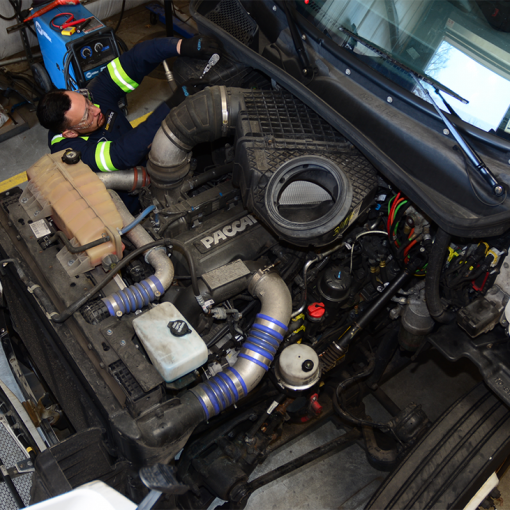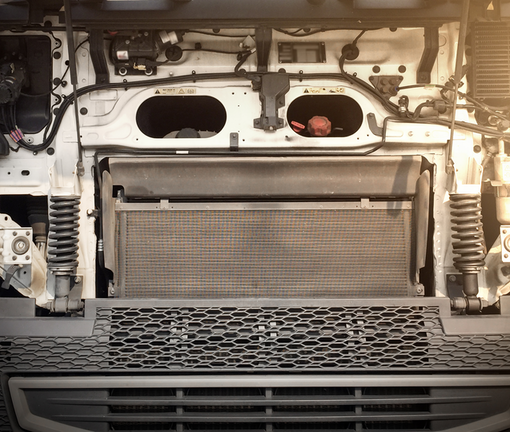Originally appeared in Fleet Owner
An increasing number of fleet managers acknowledge turning to artificial intelligence to improve safety, efficiency, and profitability. However, with the onset of ChatGPT, deep fakes, and other AI advancements, people are now looking at AI with a touch of concern. They are questioning the level of autonomy this technology will have and what that means for employers and employees alike.
How AI is benefitting fleets
Increased safety
Numerous companies now offer advanced driver-assistance systems that use AI to keep drivers informed on road changes. The industry has adopted many technologies that passenger cars have used for years, including automatic emergency braking, lane departure warnings, and adaptive cruise control.
Route optimization
Fleets dread delays caused by bad weather, natural disasters, traffic accidents, and road repairs. The faster and more safely a load gets to its destination, the better for the carrier. AI allows this, as its algorithms use real-time data to examine things like traffic patterns and weather conditions.
Improved predictive maintenance
The worst thing for a fleet is downtime, especially due to breakdowns that could be avoided with adequately scheduled predictive maintenance. Treating vehicle issues before they turn into on-the-road breakdowns not only ensures safer trips for drivers and others on the road but can also optimize the truck’s lifespan.
Ensured GHG compliance
Optimizing fuel consumption and reducing emissions is at the core of what AI-driven systems can do. EVs will obviously transform emissions, but the major adoption of non-ICEs for over-the-road fleets is still a way off.
How AI is challenging fleets
Driver privacy concerns
Though I’m listing this as a challenge, it’s a good news-good news issue. No company wants unsafe drivers behind the wheel, yet drivers don’t like the feeling that ‘Big Brother’ is watching them. Monitoring each driver’s driving patterns is essential for fleets when considering the company-breaking practice of nuclear verdicts. However, fleet managers should focus on the likely small number of drivers with problems.
Cybercrime and data breaches
The more a company relies on AI and data, the more of a target it becomes for criminals. It’s not just data breaches affecting a company’s revenues and concerning private information. It’s also the ability to hack into and breach security in the vehicles themselves, which is a frightening thought. Ensuring security will be a rapidly growing industry as more AI-enabled systems, vehicles, and products are used. Fleets will need to implement robust cybersecurity measures along with training employees on how to detect and prevent breaches.
Upfront investment costs
There’s no question that new technology is costly, which can be quite challenging for smaller fleets. Even though improved efficiency and reduced operational costs will eventually prove a positive ROI, many fleets are already facing rising costs at a time of reduced demand.
AI for fleets is not a matter of “if” but “when.” That’s why companies need to realize and plan for the benefits and challenges accompanying the technology implementation. Proactively addressing these challenges will go a long way toward developing a safer, more efficient, and profitable organization.





